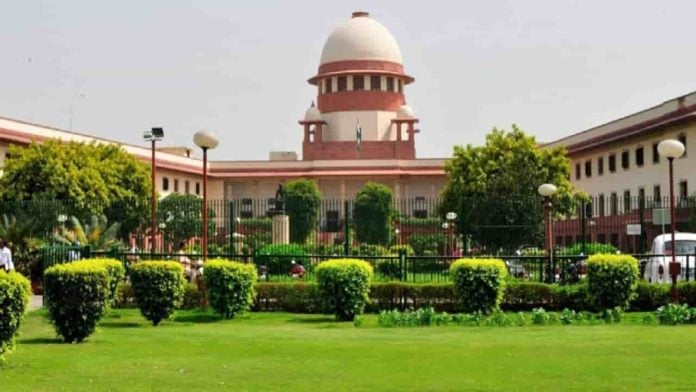The Supreme Court of India has received a set of draft guidelines by five academicians, who had filed a petition before the court seeking guidelines for the seizure of personal electronic devices by investigating agencies.
On Thursday (November 9), the matter came before the Bench of Justice Sanjay Kishan Kaul and Justice Sudhanshu Dhulia.
The Bench directed Senior Advocate Nitya Ramakrishnan to circulate these guidelines to the Union and the States.
It is important to keep in mind that two days back, the Supreme Court had expressed its concern on a petition filed by the Foundation for Media Professionals.
The Top Court had expressed concerns about the seizure of digital devices of journalists and told the Centre that better guidelines were needed. Both the petitions are now listed on December 5.
These guidelines have been filed through Advocate S Prasanna.
The salient features of the draft mentioned that the seizure of electronic devices can only take after a judicial warrant.
It said the emergency seizure must be an exception, with reasons recorded for not obtaining a judicial warrant.
The guidelines said that in case of emergency and without judicial warrant, it has to be told as to why and in what capacity the device was required to be seized.
It added that seizure should not be permitted on the ground that evidence may be found.
It further said that a privileged, professional, journalistic or academic material must be excluded from emergency seizure.
It added that such material can only be forfeited on the ground that the said material was directly part of the crime under investigation and not merely evidence of the same.
About the search, retention and return of devices/material, the guidelines stated that soon after the seizure of the device, it will have to be produced before an independent agency.
It added that all the material (irrelevant, personal, and privileged) shall be identified with relevant material be taken with a copy of the same.
The device will be returned immediately after that. Apart from this, the guidelines also clarify that there will be no retention of any other excluded material.
It was very clearly mentioned that after the initial examination by an independent agency, in the presence of the owner of the device all unimportant irrelevant, personal, and privileged data should be is identified,and should not be touched.
The irrelevant, privileged, or personal material so excluded must not be retained, and the device itself should be returned immediately after taking a copy of only the relevant material for the investigation or suspect material.
With clear words, it was asked that the owners can’t be compelled to give away passwords.
Under situations of search and seizure, the owners of electronic devices cannot be compelled to give away their password unless they legally bound to do so under statutory provisions like Section 69 Information Technology Act, 2000.
It was also clarified that no person shall be summoned by the police to produce their electronic devices whether as witnesses or accused
With respect to the duty of the investigating officer, it was also highlighted that the guidelines made it important for the investigating officer to ensure the extraction of relevant information and timely return to the owner his gadgets.
The most important thing to be taken care was that if these basic precautions have not been maintained, the material will not be used in any court or against any person accused of an offence or in any manner whatsoever.


